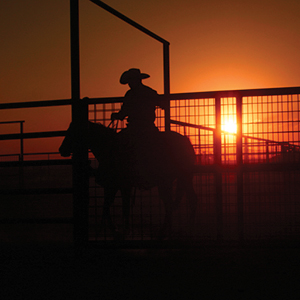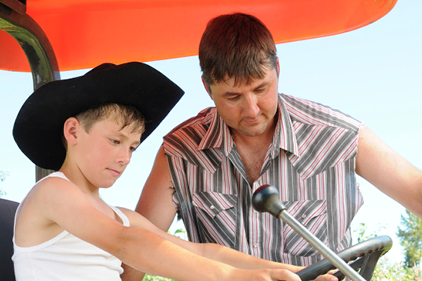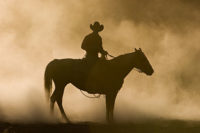In communities across our nation, no tradition runs deeper from generation to generation than that of working on a family farm. By working alongside their parents, grandparents and neighbors, young people learn important life skills and values — the values of hard work, personal responsibility and perseverance. They learn how to problem-solve and work on a team to get things done. Agriculture is a way of life; but now the federal government wants to fundamentally change that way of life.

|
In September 2011, the U.S. Department of Labor (DOL) proposed a new child-labor rule that would ban youth under the age of 16 from participating in many common farm-related tasks. The government is now trying to tell farmers and ranchers: “We know what’s best for your children, and what they should and should not be doing.”
Recently, we received some good news when DOL announced it would withdraw and “re-propose” the parental exemption portion of the rule. If the rule had been implemented as it was written, parents would no longer have discretion over the responsibilities they gave their children on farms or ranches jointly owned and operated by multiple family members.
Although this announcement was a bit of good news, the department’s action is not close to being enough. The entire rule must be withdrawn. If the remaining portion is implemented, the education and training of the next generation of farmers and ranchers will be severely disrupted. The DOL is still proposing to do away with successful farm-safety programs such as cooperative extension, 4-H, and FFA, which play a critical role in training and certifying young people to safely carry out farm and ranch activities. The department has ignored research that shows such programs improve safety habits of young people, and instead criticizes them for being too locally driven and lacking federal direction. Their solution is to nationalize these programs and have them run by the DOL in Washington, D.C.
Local experts should be the ones conducting safety training programs to educate our nation’s young people. And parents and communities should be allowed to look after the best interests of their families and citizens.
The remaining portion of the rule would also prohibit youth from participating in common farm activities such as operating a tractor, cleaning out stalls with a shovel and wheelbarrow, and rounding up cattle on horseback. To most young people growing up on a farm or ranch, these jobs are just part of their daily routine.
One example that truly demonstrates the DOL’s limited understanding of what it takes to provide our nation’s food supply is this: It proposes limiting youth from exposure to direct sunlight if the temperature reaches a certain limit once you factor in wind velocity and humidity.
How is a farmer supposed to comply with that? Hire a meteorologist?
One would think that before making such drastic changes to farm labor rules, the department would identify reliable evidence and data that shows a need for these changes. But DOL admits it lacks the data to justify them. Furthermore, according to the National Farm Medicine Center, youth-related injuries from farm accidents have declined by nearly 60 percent from 1998 to 2009.
Ask any farmer or rancher about the importance of safety, and they would tell you that safety is a top concern. But they would also tell you that critical to the rural way of life is being able to train and encourage the next generation to safely and successfully begin a career in agriculture.
If the DOL’s proposal goes into effect, not only will the shrinking rural workforce be further reduced and our nation’s youth be deprived of valuable career training opportunities, but most importantly, a way of life will begin to disappear.
The future of agriculture depends on stopping this vast overreach of executive authority and protecting individual rights.
I have shared my concerns and the concerns of many farmers and ranchers with Secretary of Labor Hilda Solis now on two separate occasions. However, we need to continue to make our voices heard and try to prevent this rule from going into effect. Please visit www.KeepFamiliesFarming.com to share your thoughts about why the family farm is important.
We know that rural America’s values are not always Washington’s values. Together, we can make certain this destructive rule does not move forward, and can protect and preserve our values for the next generation of American farmers and ranchers.




Report Abusive Comment